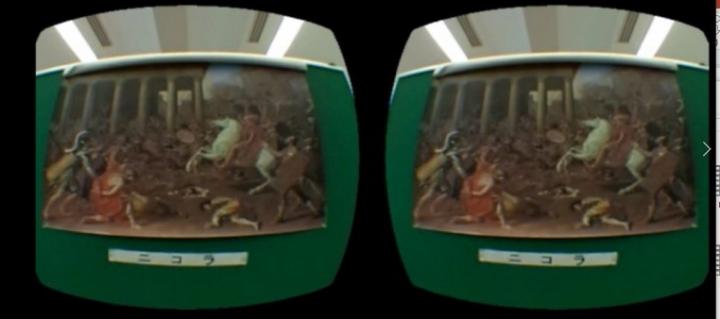Development of IT that takes human characteristics into consideration

Credit: COPYRIGHT (C) TOYOHASHI UNIVERSITY OF TECHNOLOGY. ALL RIGHTS RESERVED.
Kyoko Hine, Assistant Professor at the Department of Computer Science and Engineering, Toyohashi University of Technology and a research team at Tokyo Denki University have found that virtual reality (VR) may interfere with visual memory. In recent years, there has been high expectation that VR will be used effectively not only in multimedia and entertainment, but also in educational settings. However, in order to benefit society, IT needs to take human characteristics into consideration. The nature of VR can become known through scientific verification based on experiments like the work undertaken in this research.
In recent years, head-mounted displays (HMD) have become commonplace, and experiencing VR has become commonplace. VR moves the displayed images to match the movement of the user, creating a high sense of realism and enhanced immersion. For this reason, hopes have been raised that VR can be used as a new tool for efficient learning because it attracts children’s attention even in educational settings. However, there has been no scientific verification of the effects of VR visual memory.
Therefore, the research team conducted an experiment using HMDs and examined the effects of VR on memory. In the experiment, the participants visited a museum virtually and looked at paintings. After that, a memory test was conducted about the paintings. With regard to the VR experience, the research team set up conditions such that one group viewed images linked to their movements on an HMD (active VR) and a second group watched another person’s VR video on a display (passive VR). In other words, under active VR, the participants could look around at the surroundings themselves, but under passive VR, the participants could not look around. Comparing the results of the memory test for these two groups, the results were worse for the active VR group. From this, it became clear for the first time in the world that VR may interfere with visual memory due to the way it moves images in conjunction with user movement.
The reason may be that the enhanced sense of realism and immersion created by the ability to look around freely, that is characteristic of VR, tires the brain and consequently prevents the formation of visual memory. While there are high hopes for VR technology as an educational tool that attracts users, and children in particular, it is important to create teaching materials that take into account these characteristics of VR. Society will require the development of IT that considers human characteristics more than ever in the coming years.
The museum was reproduced and photographed in VR by the research team. It was a challenge to make the preparations to secure a quiet and appropriate space for viewing the paintings. In addition, the team took 10 minutes of video. The videos had to be re-shot many times because it was necessary to secure an appropriate viewing angle to view and remember the paintings for the whole 10 minutes. As a result of these efforts, the team was able to produce good quality VR images for the experiment.
The team wants to find out why visual memory is hindered when the participants can look around freely in VR. Moving forward, the team hopes to offer suggestions on how to use VR as a better learning tool by removing the causes of this phenomenon.
###
Reference:
Hine K. & Tasaki H. (2019). Active View and Passive View in Virtual Reality Have Different Impacts on Memory and Impression. Frontiers in Psychology. 10:2416.
https:/
Media Contact
Yuko Ito
[email protected]
Related Journal Article
http://dx.




